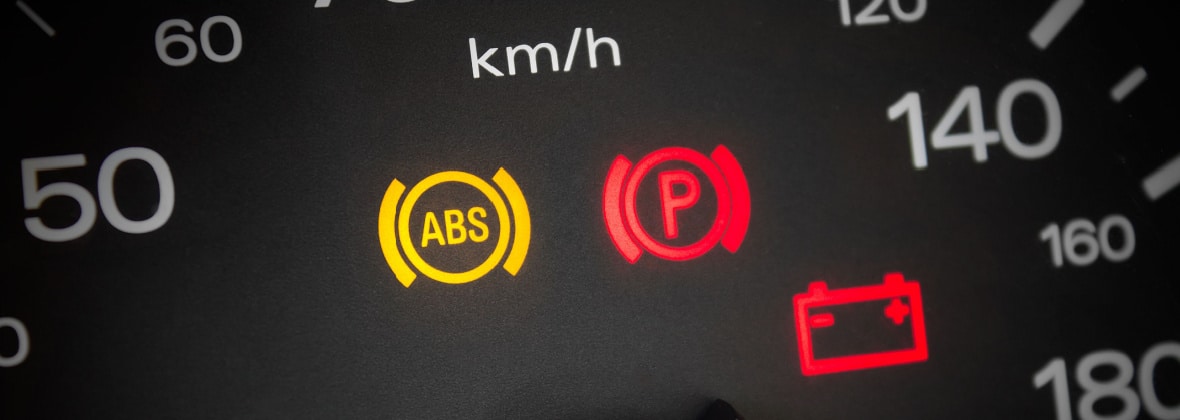Protect Your Anti-Lock Braking System: 5 Ways To Save Money On ABS Repair
February 17, 2023
Tires

Anti-lock braking system (ABS) repair and control module replacements can be costly, but there’s plenty you can do to reduce wear-and-tear and ABS repair costs over the long term.
That’s what today’s post is all about. Read on to learn 5 ways to save money on ABS repair services with proper braking habits, upkeep practices, and smart shopping tips, or contact your local TIRECRAFT to schedule a free ABS repair quote straight away.
1. Know How To Spot The Signs Of ABS Failure
Knowing how to spot the signs of ABS failure will help you prevent minor problems from turning into major issues, and it will also save you from booking ABS repair services before they’re truly needed.
For example, many drivers get alarmed by mechanical noises or slight pedal pulses while applying the brakes in ABS-equipped vehicles. But in this case, there’s no reason to panic—these are normal signs that your ABS system is working as intended.
That said, you should book an ABS inspection if your brakes start locking up while driving normally, or if your ABS light turns on, but as you will see, this does not always mean an ABS repair is required.
To schedule an inspection and get a free quote on ABS repair, contact your local TIRECRAFT.
2. Check Your Brake Lining And Fluid Before You Pay For ABS Repairs
ABS systems can fail due to worn brake linings or as a result of air or dirt contaminating your brake fluid. Fortunately, simple brake pad and fluid replacements are typically much cheaper than full-on ABS repairs.
Most manufacturers recommend replacing brake fluids and linings every 2-3 years or 40,000km of driving, although this recommendation will vary depending on your vehicle weight, driving frequency, and maintenance habits, as well as the type of brake pads you use.
To assess the condition of your brake lining/pads, use the eye test: if your pads seem very thin, less than ¼ inch, they are likely in need of a replacement. Front brake linings typically need to be replaced earlier, since they bear the brunt of the weight of your vehicle as it stops.
To get an expert opinion and free quote on a fluid change or ABS repair service, contact your local TIRECRAFT.
3. Build Healthy Braking Habits To Reduce The Need For ABS Repairs
When driving a vehicle equipped with an anti-lock braking system, you should:
- Never pump the brake pedal during an abrupt stop. This will release the anti-lock system. Instead, when you feel or hear the ABS system kick in, press and hold the pedal with solid, steady pressure. This is how the ABS system is intended to be used, and following this recommendation will minimize any excessive wear from repeated locking-and-releasing.
- Always maintain sufficient braking distance. As a general rule, you should try to follow at least 3 seconds behind vehicles when driving in good conditions. Allow even more stopping distance when driving on wet, icy, or snow-covered roads.
- Remove excess weight from your vehicle. Emptying your car of any unnecessary cargo and uninstalling roof racks can greatly reduce the weight of your vehicle, which will greatly reduce the amount of work your brakes have to do.
- Drive carefully. Coast whenever you can, limit your speed, and avoid last-second braking whenever possible. The less you put your ABS system to work, the longer it will last!
4. Maintain Proper Air Pressure In Your Tires
Proper tire pressure not only optimizes fuel efficiency, traction, and road performance; it also mitigates excess wear on your braking system and keeps your ABS working as intended.
Low tire pressure effectively reduces the size of your wheel/tire circumference and causes irregular rotational velocity, both of which can cause your ABS warning light to come on.
Before you spend money on an ABS repair service, make sure your tire pressure is at the recommended level. A $2 top-up could save you an unnecessary service fee!
5. Find A Qualified ABS Repair Expert: Save On Service With TIRECRAFT
If you suspect you need ABS repair services, your local TIRECRAFT can help you save with:
- FREE ABS inspections and repair estimates
- 20,000km / 12-month guarantees on all ABS repair services, as detailed in our Mechanical Warranty
- Service discounts via the MyTIRECRAFT Rewards program
- Affordable replacement parts
To schedule a consultation with our ABS repair experts and get a free quote on any service, use the Find a TIRECRAFT tool on our website.
Back

